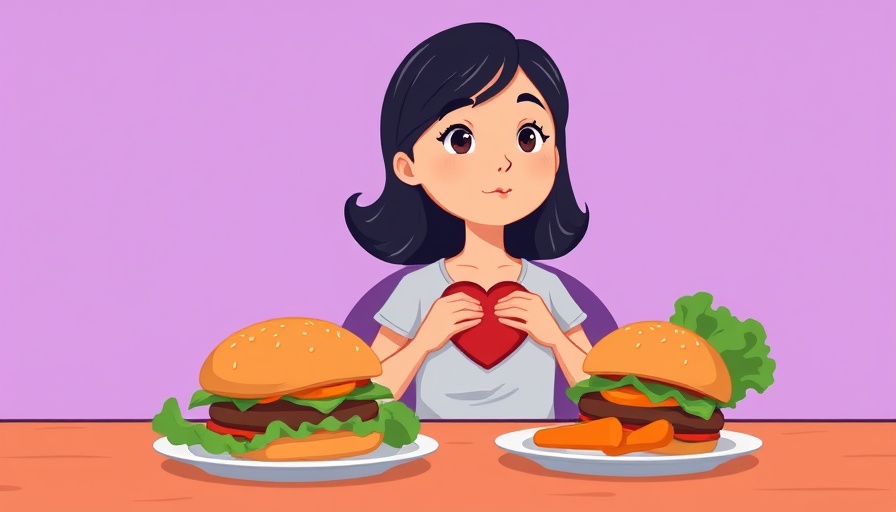
Understanding the Connection Between Food and Emotion
As children, we often learn emotional lessons that shape our adult lives, and for many, food plays a critical role in this narrative. The article "When Trying to Be 'Good' with Food Makes Us Sick" tells the story of a young girl who connects her worthiness to the food she eats, mirroring a common struggle many adults face today. This correlation—between morality and food choices—can lead to a lifelong battle with eating practices, reflecting broader societal beliefs about good and bad foods.
The Weight of Societal Expectations
In a world constantly shining a spotlight on thinness as an ideal, many individuals internalize the dangerous idea that their dietary choices reflect their moral value. The guilt that arises from indulging in perceived "bad" foods often triggers a cycle of restriction, shame, and rebellion. Research indicates that this internal conflict can lead to disordered eating patterns, as individuals attempt to navigate food choices through a lens of moral judgment. According to the National Eating Disorders Association, disordered eating affects millions, underscoring the critical need to reevaluate our relationship with food as a society.
Beyond Restriction: The Importance of Intuitive Eating
Instead of adhering to strict dietary rules, intuitive eating offers a compassionate approach. This method encourages individuals to listen to their bodies rather than follow externally imposed food guidelines. By tuning into personal hunger cues and cravings, one may find a healthier balance and foster a more positive relationship with food. Practicing intuitive eating can help alleviate the shame associated with food and promote mental well-being.
Shifting Perspectives: From Shame to Empowerment
Understanding how societal norms influence our eating habits is crucial. Empowering oneself with knowledge about nutrition, free from guilt and shame, can foster a healthier mindset. For instance, recognizing that all foods have a place in a balanced diet can alleviate the mental burden of labeling foods as "good" or "bad." This shift in perspective not only encourages healthier eating habits but also cultivates a sense of self-acceptance and worth beyond dietary choices.
The Risks of Diet Culture
Engaging with diet culture can have lasting effects on mental health, leading to an obsession with weight and food. A study published in the *Psychological Review* underscores this risk, showing that individuals who engage with rigid diet regimens often end up in a cycle of failure and guilt. By recognizing the impact of diet culture on personal and societal levels, we can begin to dismantle the stigmas surrounding food choices and create a space for a more holistic understanding of health.
Exploring the Mental Health Connection
The interconnectedness of diet and mental health cannot be overstated. Stress, anxiety, and depression can significantly affect eating habits, making practitioners and individuals alike aware of the importance of mental well-being in approaching nutrition. Studies conducted by mental health organizations suggest that reducing the emphasis on strict dietary guidelines may lead to improved mental health outcomes, further advocating for a balanced approach to food.
As we navigate our discussion on food and morality, it is vital to prioritize personal narratives that expand our understanding. Everyone's journey with food is unique, shaped by culture, upbringing, and personal experiences. Acknowledging and sharing these stories can foster community support and understanding.
In conclusion, reexamining our relationship with food can be a pathway to greater mental balance. By adopting intuitive eating practices and challenging societal norms, we can work towards a healthier approach to nourishment. Everyone deserves to cultivate a positive relationship with food that fosters both mental and physical well-being.
Are you ready to reevaluate your relationship with food? Take the first step today by embracing intuitive eating and prioritizing your mental well-being. Remember, your worth isn't tied to your dietary choices.
 Add Row
Add Row  Add
Add 




 Add Row
Add Row  Add
Add 

Write A Comment